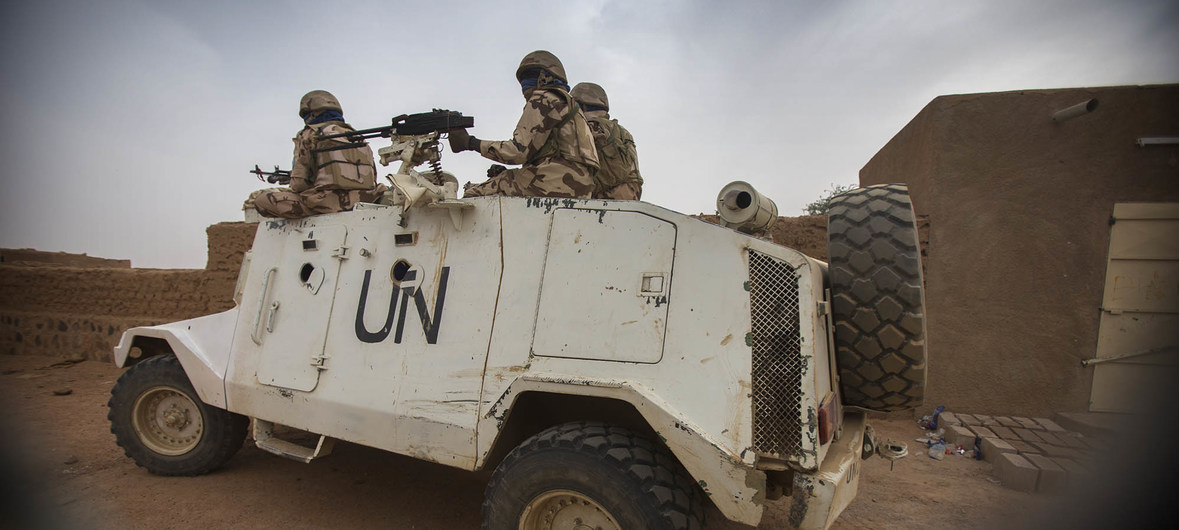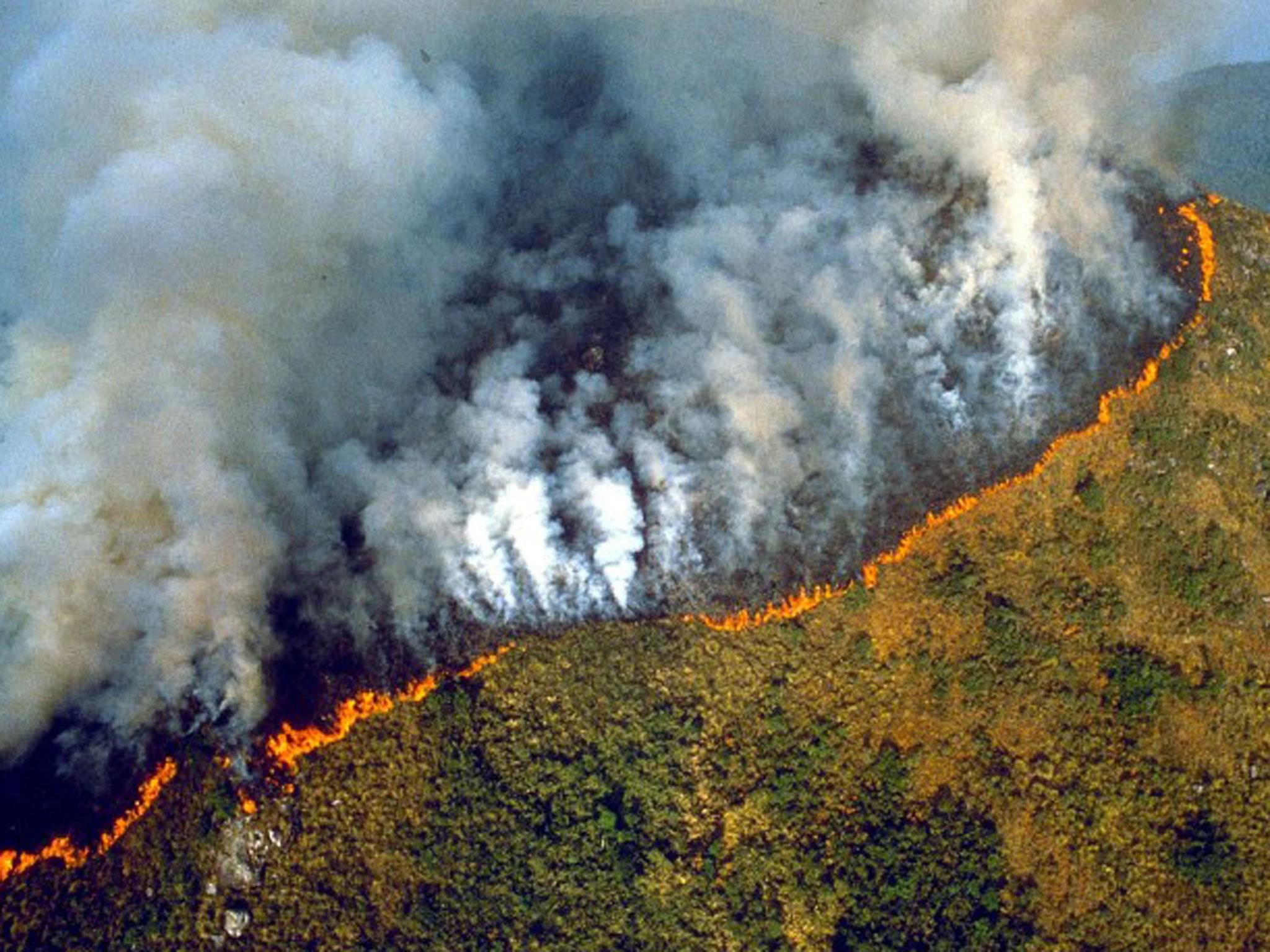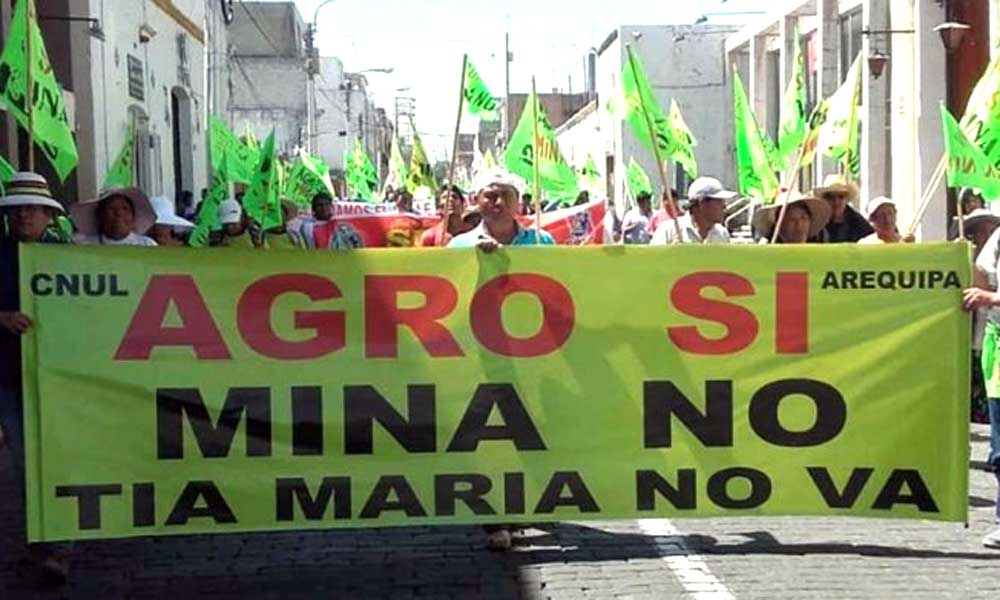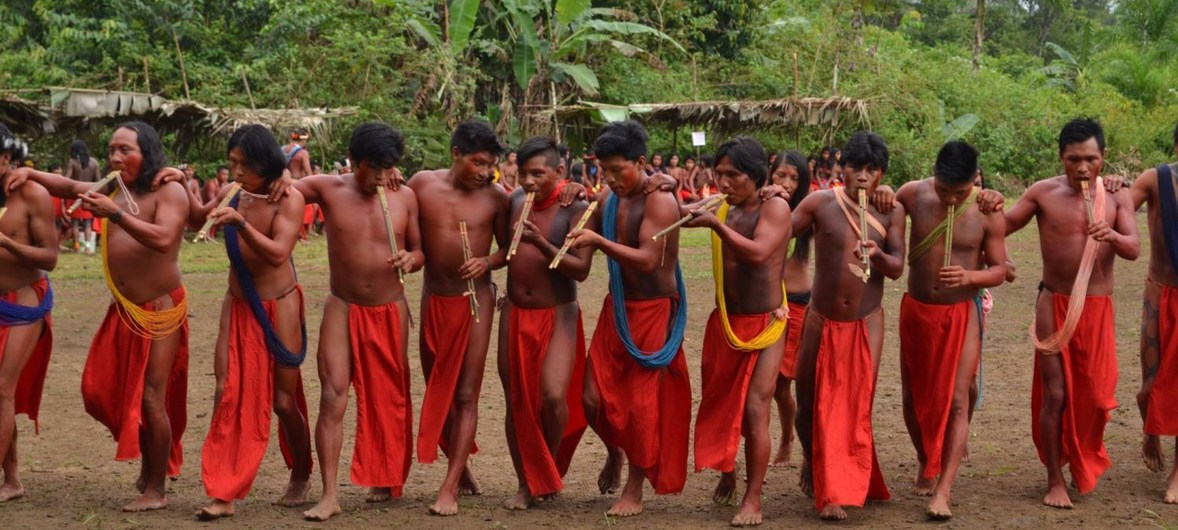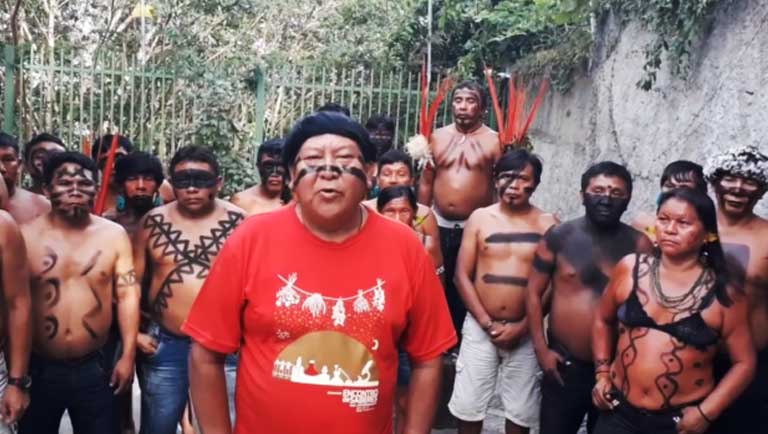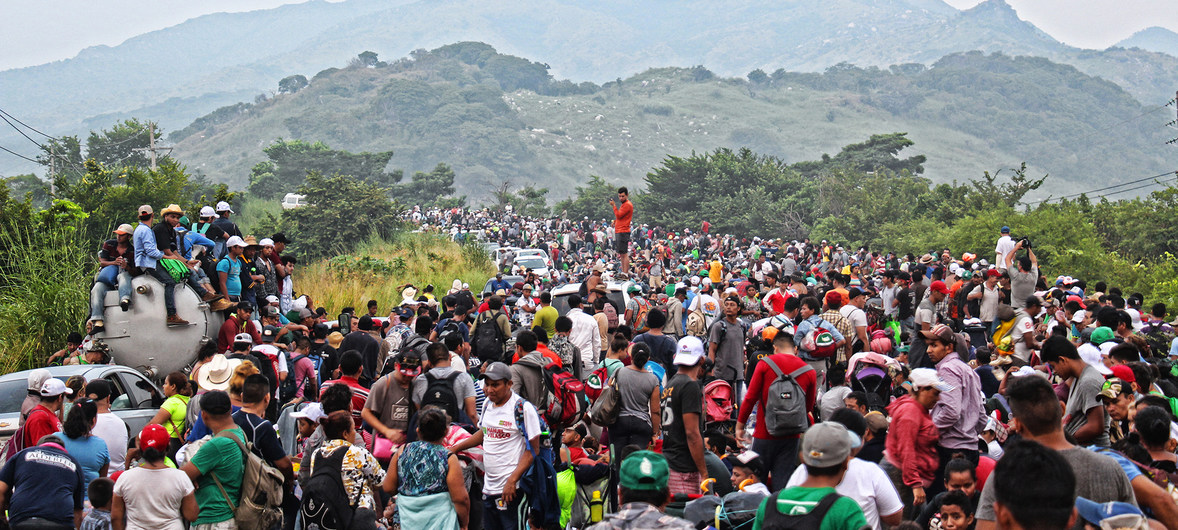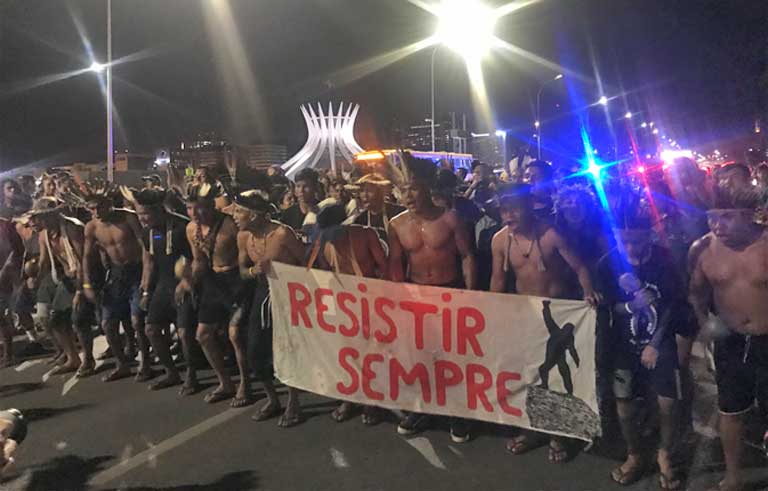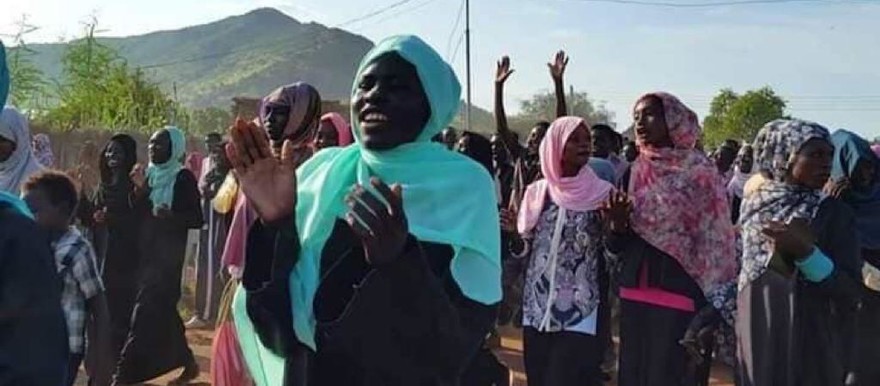
Anti-mining protests in Sudan’s Nuba Mountains
For the past several weeks, residents of Sudan’s conflicted Nuba Mountains have waged a protest campaign demanding the closure of unregulated gold mines in the region. Villagers from the communities of Talodi and Kalog, South Kordofan, have been holding a sit-in outside one of the facilities, where they charge cyanide is contaminating local water sources. The mining operation is said to be protected by fighters from the Rapid Support Forces paramilitary headed by warlord Mohammed Hamdan Dagolo AKA “Hemeti,” who is owner of the facility. Twelve people were killed by security forces at another gold mine near Talodi in April. The sit-in has won the support of the Sudanese Professionals Association, the main force behind nationwide protests that toppled strongman Omar Bashir earlier this year. Sit-ins have also spread to other areas affected by gold mining, including Sudan’s Northern State. (Photo: Radio Dabanga)



